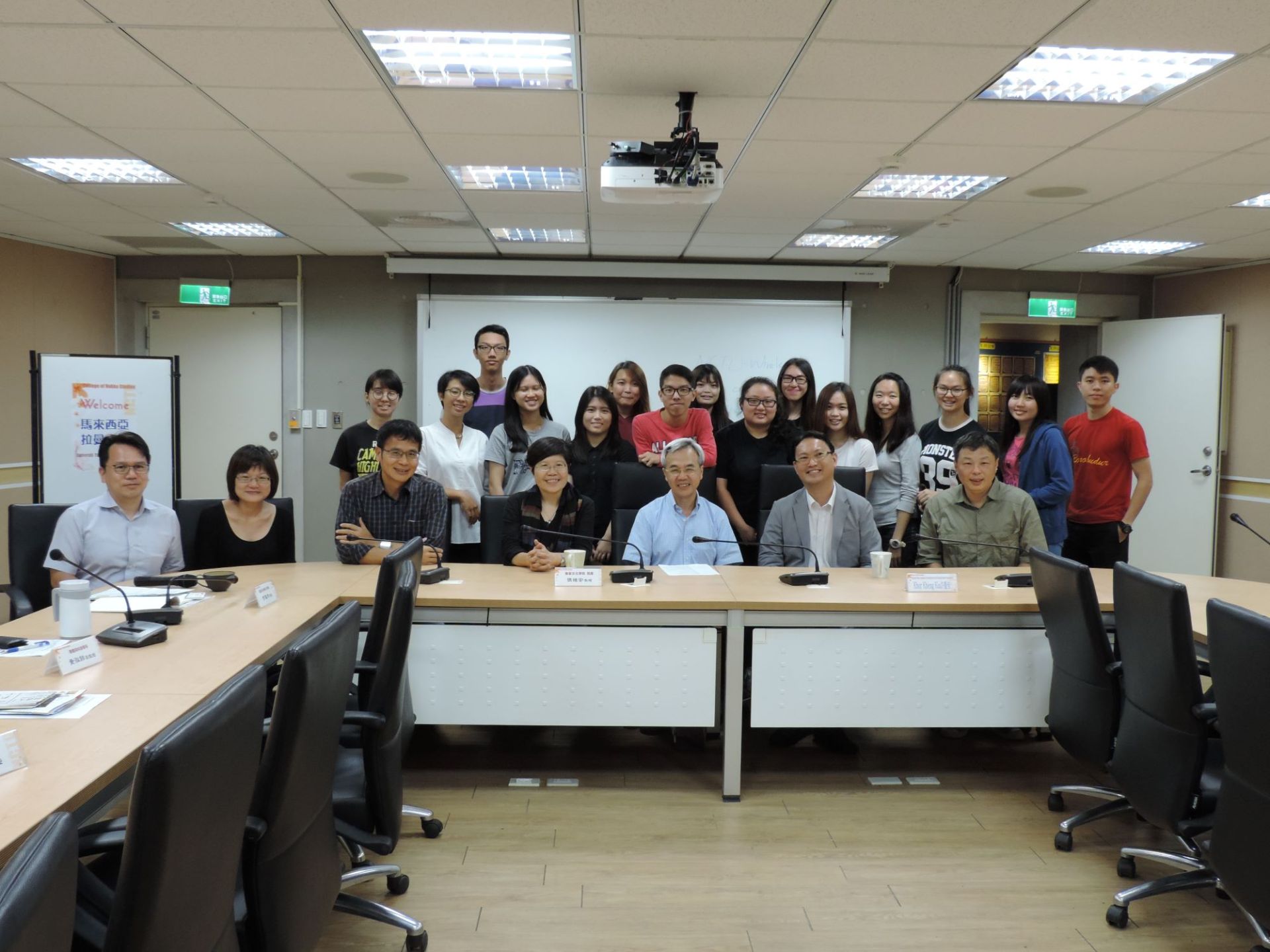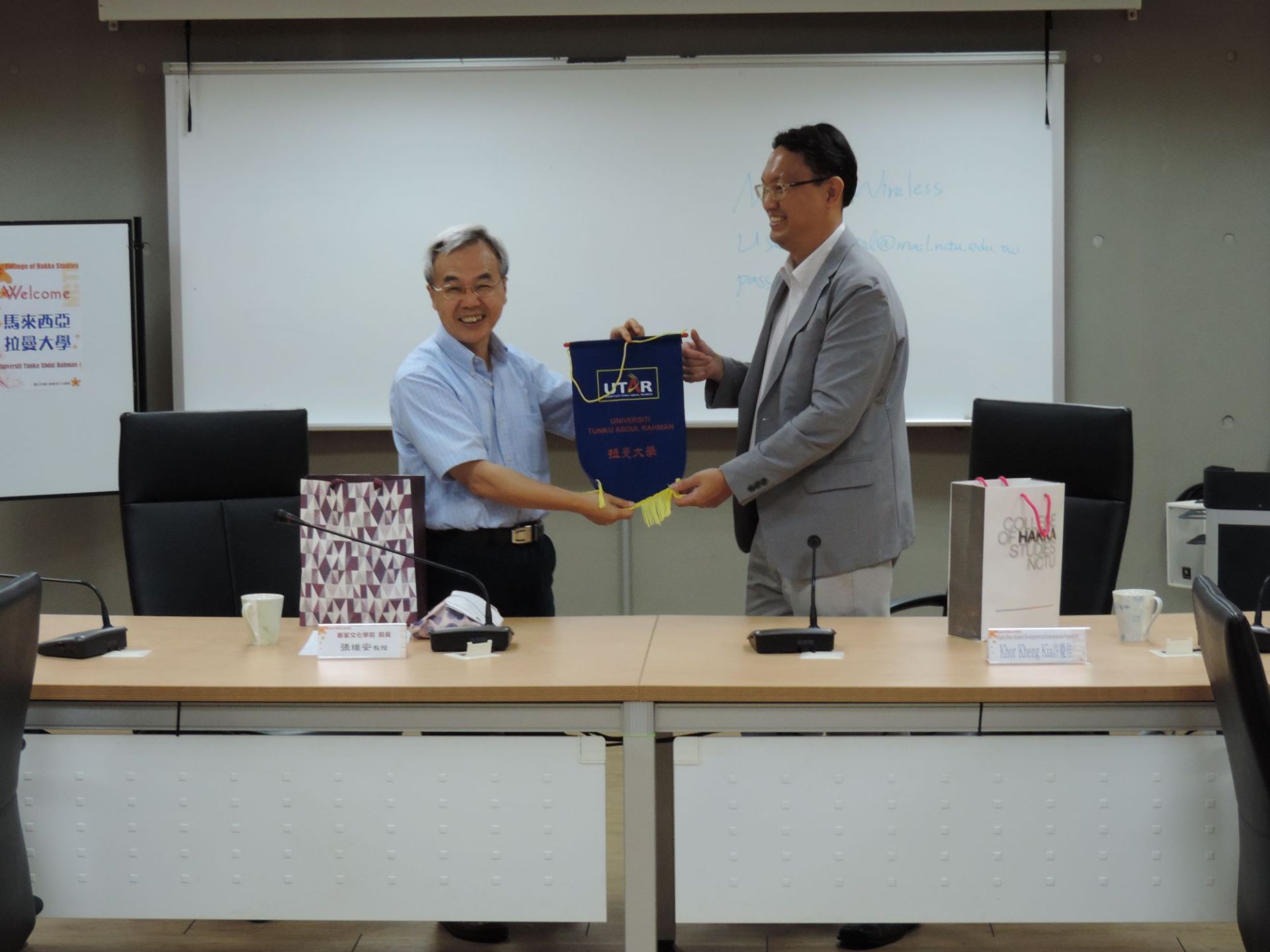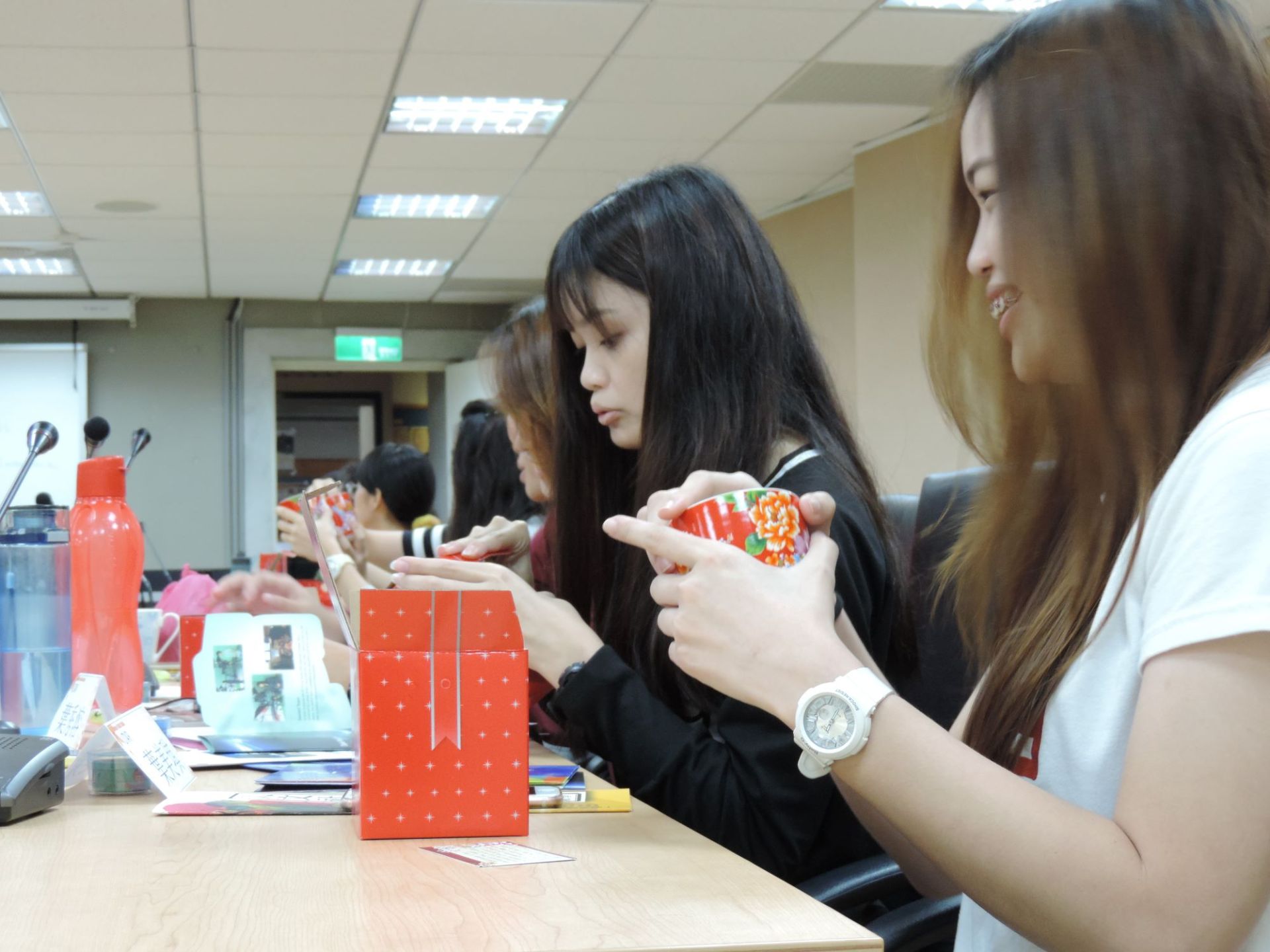Learning Away From Home Visitors from University Tunku Abdul Rahman -- Visiting the College of Hakka Studies to Experience Taiwan

Group photo of visiting students and teachers from University Tunku Abdul Rahman and teachers from the College of Hakka Studies (Source / National Chiao Tung University
University Tunku Abdul Rahman in Malaysia and College of Hakka Studies of National Chiao Tung University collaborated in the Learning Away From Home program for the first time last year (2016). Seven students from Graduate School of Chinese Studies of UTAR came to Taiwan for the 5-day Learning Away From Home program. Both universities benefitted greatly from the program, and this year, the program was expanded. Assistant professors from UTAR Department of Advertising and Dr. Khor Khen Kia, vice dean of the College of Literature and Social Science led 14 students from different disciplines including psychology, biotechnology, finance and economics, and business management to Taiwan for a 7-day Learning Away From Home program. Vice Dean Dr. Khor Khen Kiahoped that the trip would help students move beyond the framework of the classroom, and by experiencing the local customs of Taiwan, understand and learn things that cannot be taught on paper.

Dean of the College of Hakka Studies, National Chiao Tung University, Chang Wei-An (left) receiving the school’s banner from the vice dean of the Rahman University College of Literature and Science (right). (Source / National Chiao Tung University Hakka College).
National Chiao Tung University and UTAR have collaborated on numerous Learning Away From Home programs, but the cooperation began through a series of happenstances. According to Dean Chang Wei-An of National Chiao Tung University Hakka College, the Monsoon Asia and Multicultural Program was first hosted at National Tsing Hua University in 2007 to explore humanities in Monsoon Asia. During that time, several teachers from National Chiao Tung University Department of Humanities and Social Sciences began cooperation with Rahman University, and established the bridge of friendship. Thereafter, the relationship was deepened through their Hakka culture research. Nevertheless, Dean Chang Wei-An believes that the exchange memorandums signed by many universities today are limited to academic research between professors, and hopes that through Learning Away From Home programs, the relationship between both universities can be furthered by student interaction.
According to Associate Professor Lo Lieh-Shih of National Chiao Tung University Department of Humanities and Social Sciences, if knowledge taught from textbooks are regarded as points, then the best way to connect these points into lines and surfaces is through practical experience. The advantage of the Learning Away From Home program is the direct and profound understanding and inspiration that come from actual immersion into a place. For example, in his lecture on Taiwanese Hakka Culture in Transition, Professor Luo planned to lead visiting students through temples, monuments and irrigation ditches around Hakka houses, and let the land tell stories that are beyond the bounds of text "points".

National Chiao Tung University Hakka College prepares Hakka design mugs as gifts for guests (Source/ National Chiao Tung University Hakka College)
For students in this Learning Away From Home program, it was their first visit to Taiwan. In addition to expecting to benefit from a rich curriculum, the students were also greatly attracted by the island's food and culture. Wang Guo-Chuan, a student from the Department of Biotechnology, hoped to experience social and cultural impact during the trip, and integrate different humanistic views into his profession and future research. Yeh Mei-Chi, a student from the Business Management Department, often watched Taiwan's variety shows and idol dramas, and has envisioned and looked forward to visiting Taiwan. Having now set foot onto the land, she was particularly excited and hoped to taste authentic Taiwan snacks.
The 7-day curriculum from May 15-21 combined communication and humanity courses. The curriculum was not only multi-dimensional, but also included an itinerary for getting to know Taiwan. The curriculum offered courses on modern Taiwan history, changes in the Hakka culture, international film and television co-productions showing the popular cultures of East Asia, analysis of government policies on TV-induced tourism, Taiwan's indigenous social culture, social network analysis, and comparison of Hakka community networks in Taiwan, China and Malaysia. Last, students were brought to the mountain city of Jiufen to experience the beauty of Taiwan culture.





